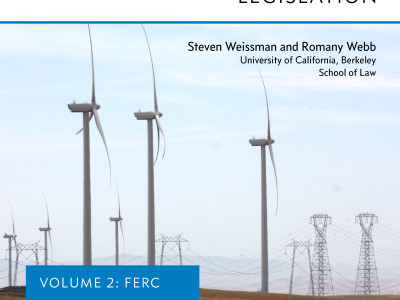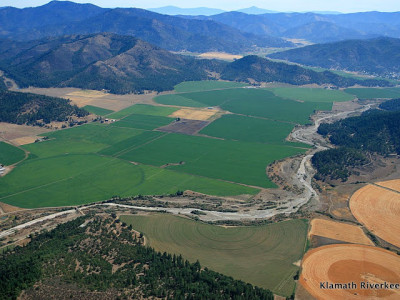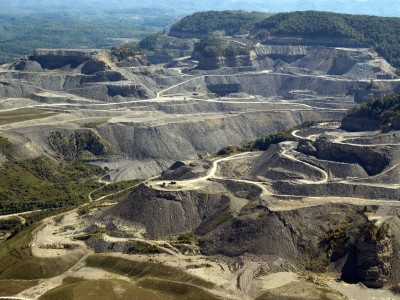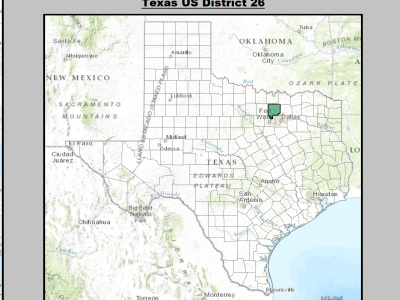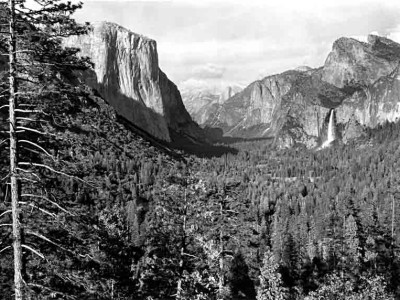The Federal Energy Regulatory Commission Can Do a Lot to Reduce Greenhouse Gas
A new report shows that FERC has extensive power to address climate change.
The U.S. Environmental Protection Agency (EPA) has captured the attention of the energy world with its proposed regulations to reduce greenhouse gas emissions from existing power plants – and for good reason. The EPA’s authority is broad and its resolve to address climate change is evident. But other federal agencies are in a position to make a difference, as well – most notably the Federal Energy Regulatory Commission (FERC). FERC is the agency that sets rates ...
CONTINUE READINGGroundwater and the public trust doctrine, California style
California trial court rules that public trust doctrine applies to pumping that reduces flow in a navigable waterway
If you follow California water law or environmental law, you probably have been aware that the Environmental Law Foundation has been pursuing a public trust claim based on groundwater pumping that affects the Scott River. Last week they gained a victory at the trial court level, with a ruling that endorses the principle that groundwater removals affecting flows in a navigable stream are subject to the public trust doctrine. Appeals are sure to follow, and it's still ...
CONTINUE READINGHow the Public Views Climate Action
The public continues to support a federal action to address climate change.
A poll released last month probed American attitudes toward climate change. The poll was released after the Obama Administration issued its proposed rules for existing power plants to loud cries of protest from industry. The poll was conducted by Stanford University and Resources for the Future, a highly regarded think tank. At the time, the press reported the poll as finding Americans unconvinced that limiting emissions would hurt the economy. But the finding wa...
CONTINUE READINGA win for EPA on mountaintop removal
D.C. Circuit upholds Enhanced Coordination Process, refuses to review agency guidance
The D.C. Circuit has rejected a challenge to consultation procedures developed by the EPA and Corps of Engineers for reviewing mountaintop removal mining permits and to EPA's guidance for reviewing permits issued by the Corps or state permitting agencies. Because it rests on standard administrative law, the decision shouldn't merit comment. But it does, because it comes at a time when there is a great deal of judicial confusion specifically about the roles of EPA ...
CONTINUE READINGWild horses and the goals of nature protection
A petition to list wild horses as endangered or threatened highlights questions about what our conservation laws should protect
Friends of Animals and The Cloud Foundation have filed a petition seeking listing of the wild horse in the American west as an endangered or threatened species. Given that, according to the petition itself, there are currently some 34,000 wild horses on public lands in the west (with other estimates closer to 50,000), listing is quite unlikely. The petition seems largely to be a vehicle for wild horse advocates to vent their longstanding frustration with th...
CONTINUE READINGNorth Dallas Forty
A North Dallas Representative sponsored the House bill to save inefficient light bulbs -- but he also advocates energy efficiency.
Yet again, House Republicans have passed a ban on enforcing efficiency regulations for light bulbs, taking a brave stance in favor of energy wastage. The amendment bans DOE from spending any money to enforce the restrictions. They've done this repeatedly, for reasons that seem to have more to do with talk radio than with any actual policy objections. What makes this round a little more interesting is the stance of the amendment's sponsor, Michael Burgess, whose dist...
CONTINUE READINGThe Wilderness Act and climate change
Changing the Wilderness Act to respond to climate change is a terrible idea
The Wilderness Act is one of the iconic pieces of environmental legislation, and it is 50 years old this year. It created a process and management standard by which millions of acres of relatively undeveloped federal land were protected from development and most forms of active human management. These lands are to be managed, as the Act puts it, to ensure that they are “unimpaired for future use and enjoyment as wilderness.” Millions of Americans have enjoyed the sol...
CONTINUE READINGBan the Quad?
The grassy Quad is emblematic of university life. But its days may be numbered.
When I picture a university, I immediately envision the quad: an area of grass and trees surrounded by campus buildings, like the photo from one of America's oldest universities accompanying this post. But those beautiful lawns may need to go. That would be a bit sad, and not just because the students could lose a place to sunbathe and play frisbee. The quad could still be a campus focal point, and it might still be a place of beauty, but it won't look the same. ...
CONTINUE READINGSolar power in North Carolina
How the solar industry became successful in North Carolina
When it comes to politics, North Carolina is not California. California is regularly and consistently Democratic at the state and national level. North Carolina is a swing state in presidential elections, has a Republican majority in its delegation to the House of Representatives, and has a state government currently dominated by Republicans. And when it comes to environmental policies, North Carolina has been famous recently for its lax regulation – allowing a ...
CONTINUE READINGCommemorating the Yosemite Grant Act
150 years ago, Yosemite Valley was set aside for public use and recreation
We're a little bit late on this one, but can't let it pass completely unacknowledged. And actually the timing is perfect -- when better to commemorate the national parks, famously called by Wallace Stegner (and later Ken Burns) "America's best idea" then on Fourth of July weekend? 150 years ago this week, President Lincoln signed the Yosemite Grant Act, one of the first tangible expressions of the national park impulse. The Act granted Yosemite Valley and the Mari...
CONTINUE READING



